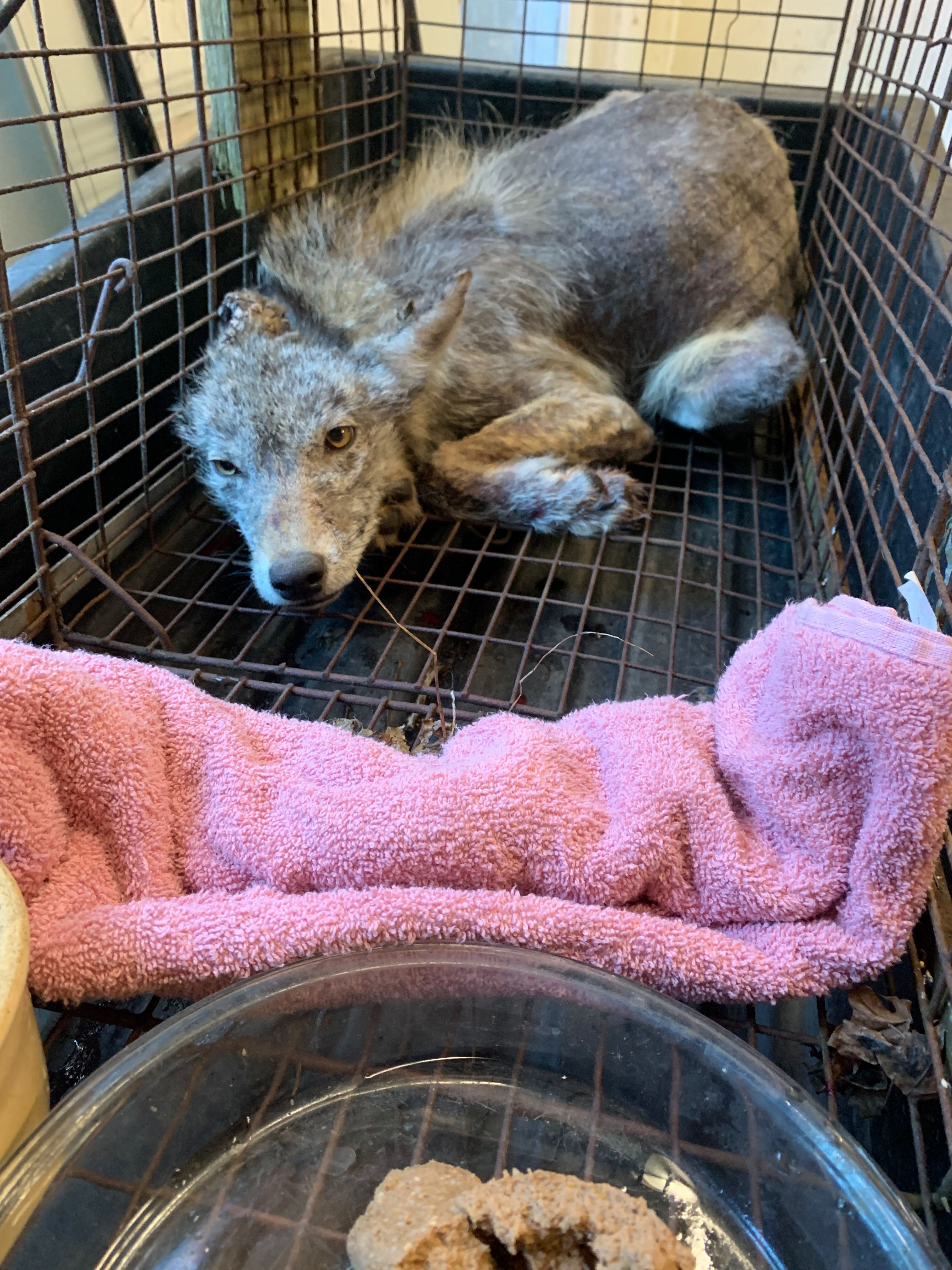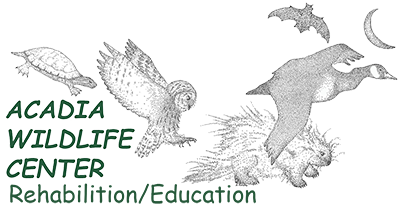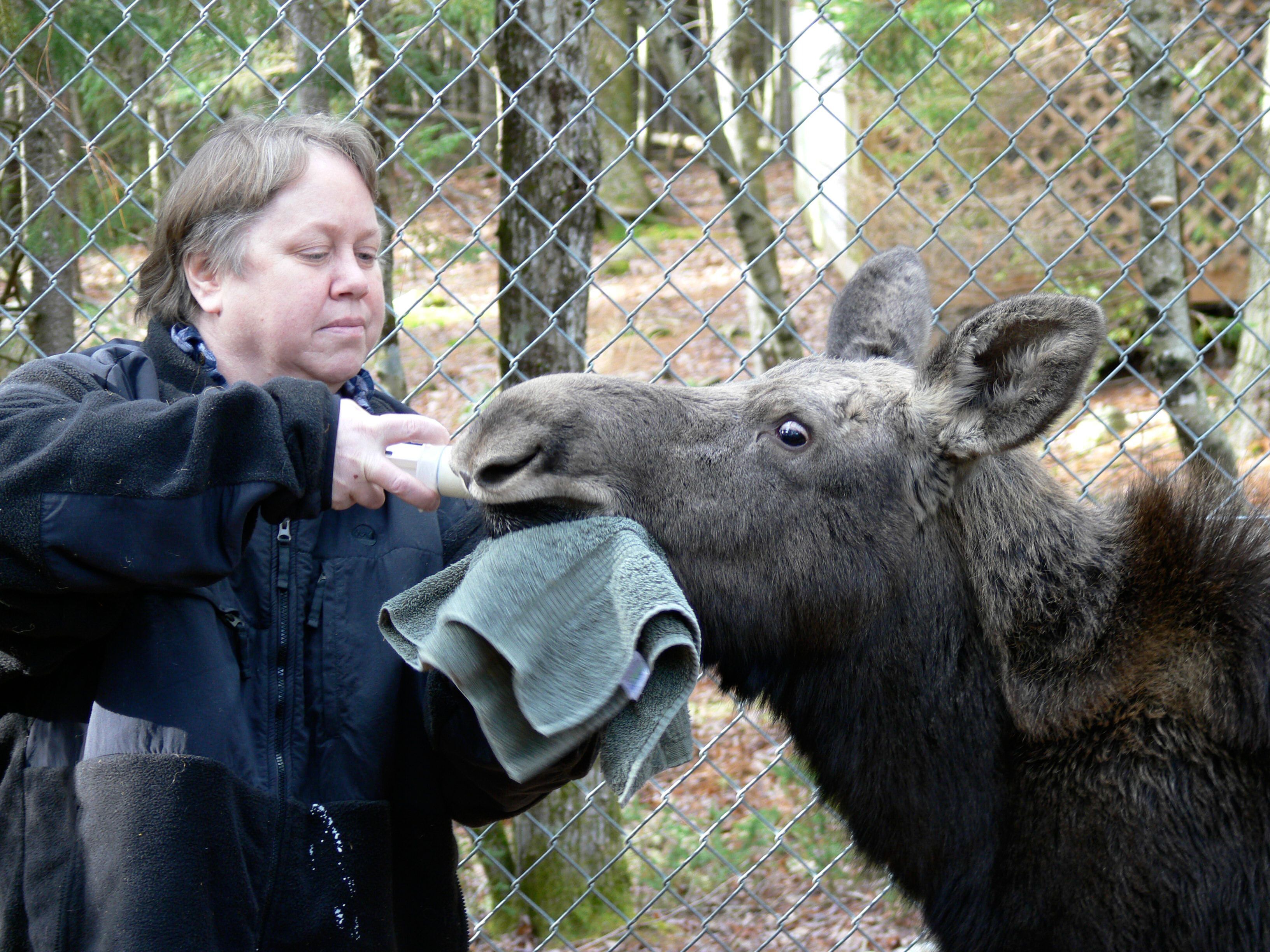Mission:
To maintain a clinic for native wildlife, serving wildlife in need and our communities, building bridges between people and the environment.
History
Acadia Wildlife Center (AWC) was started in 1994 to care for injured or orphaned native wildlife. Patients are treated by trained professionals with licenses from Inland Fisheries and Wildlife of Maine, and the federal government. Animals are brought to our clinic by game wardens, vets, police, marine patrol, and by many members of the general public. AWC is located on fifteen acres of private land adjacent to Acadia National Park.
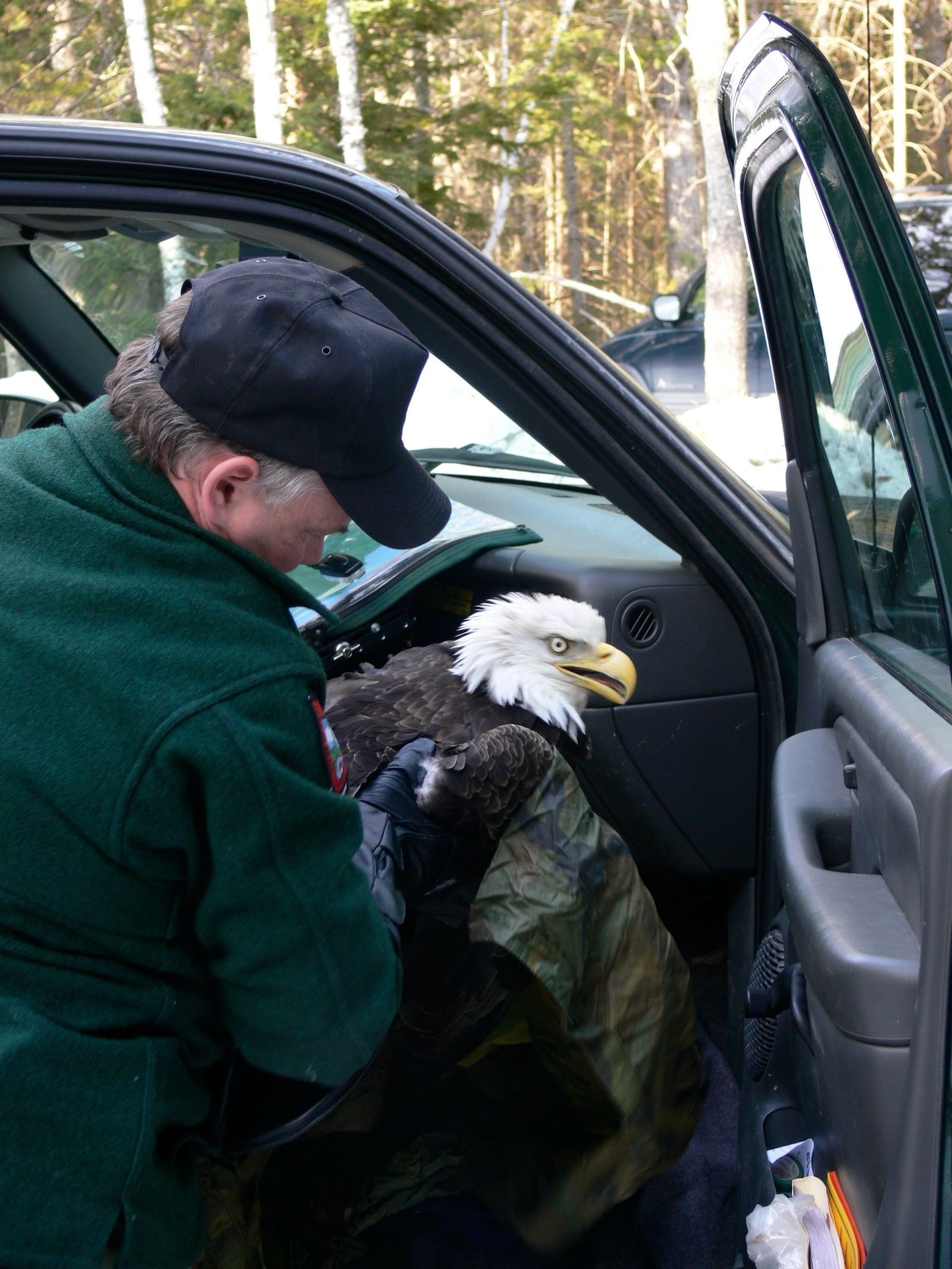
We receive wildlife from all over Maine, with a concentration along the central coast and Acadia National Park. We also advise the public on wildlife situations. The center admits hundred of animals each year; answers 5000 phone calls annually; and at any given time can have over 100 patients in house. Some animals come for a day; some stay for a year. Always the mission is to return mentally and physically fit animals back to the wild.
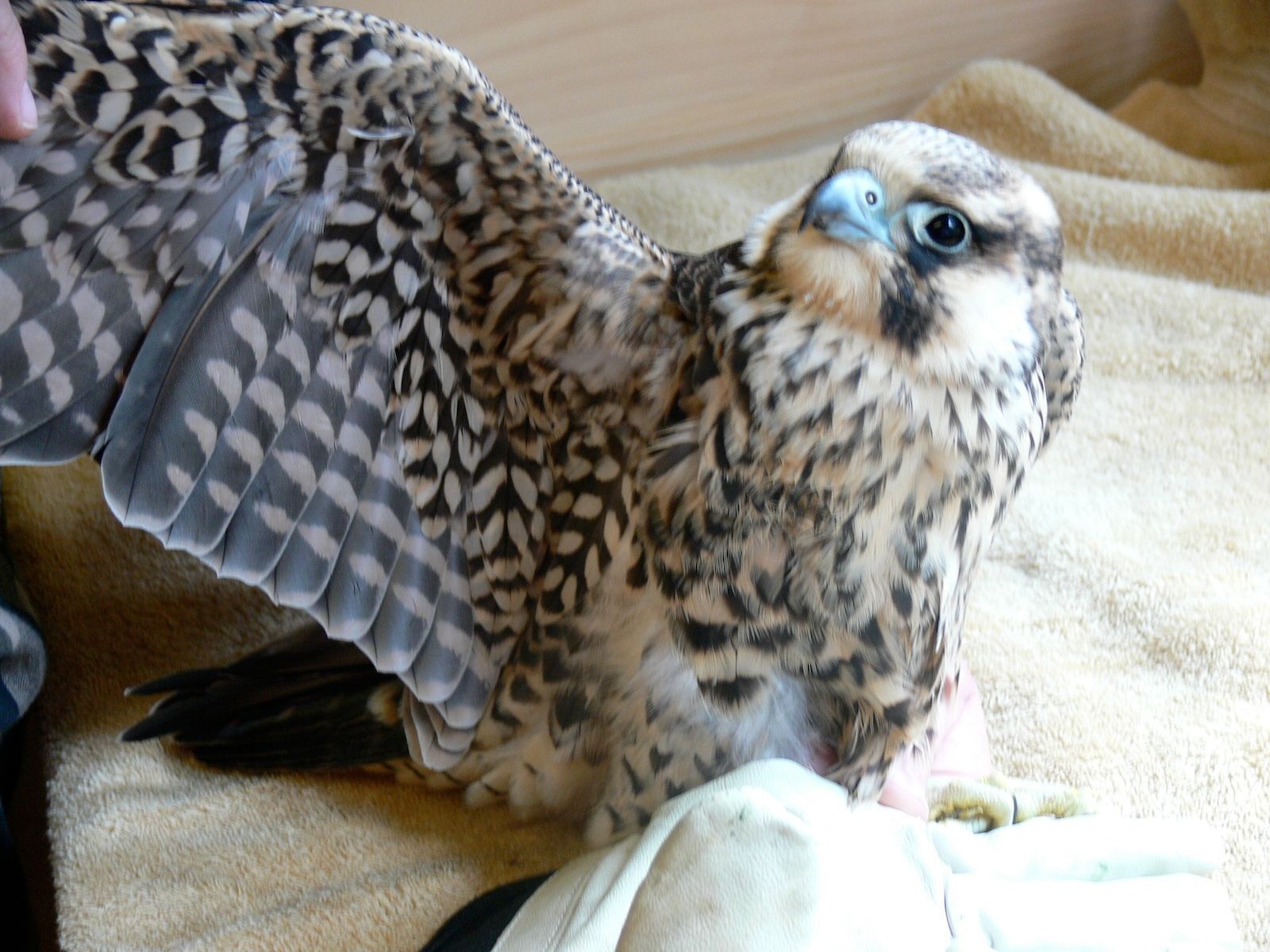
Coleen Doucette founded the non-profit organization in 1994 while working as a vet technician for Schoodic Animal Hospital. She left AWC in 1997 to work on oiled wildlife for Tri-State Bird Rescue in Delaware.
The center was moved to land close by in 1997, and Ann Rivers took over as the director. 1997 to 2023 Ann has worn 10 hats, everything from fundraising to rehabbing hundreds of wild animals every year, mostly by herself.
The AWC facilities have grown from a 10’X10’ cabin and a bunny hutch to the present day 1,100 sq. ft. clinic and nature center. Fifteen outside enclosures provide exercise for recovering animals. The range of incoming patients requires a large variety of habitats including a flight pen for eagles, a water cage for loons, and a flyway for bats.
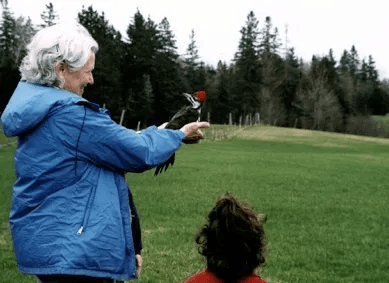
At any time, we must be ready to treat, feed, and house anything from a mouse to a moose. AWC takes most species of native mammals, birds, reptiles, and amphibians specializing in the care of large mammals, aquatic mammals, and bats. There are a few exceptions: we refer raccoons and fawns to other rehabilitators; and the state of Maine currently restricts the rehabilitation of bears.
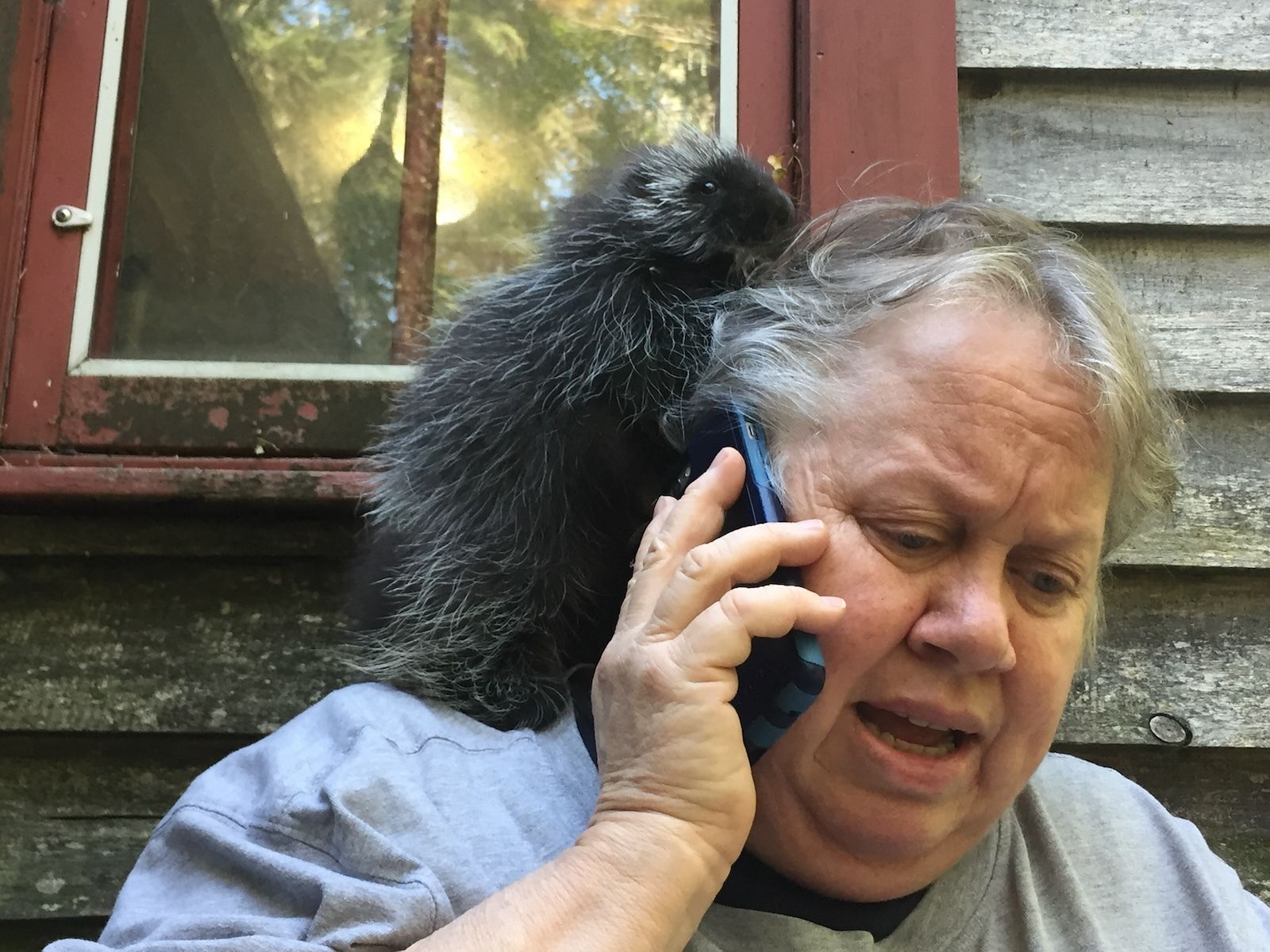
The spring is a time of particular intensity and eighteen-hour days, as babies of all species arrive. Baby bats must be nursed every two hours round the clock. Other mammals are fed every three to four hours. Birds, when first hatched, are fed from dawn to dusk every 15 minutes. Baby Hummingbirds, for example, are fed every 7½ minutes! Diets must be prepared, cages set up or cleaned, supplies ordered, and there is the ever-present fundraising to pay for the operations. The Center is a busy place.
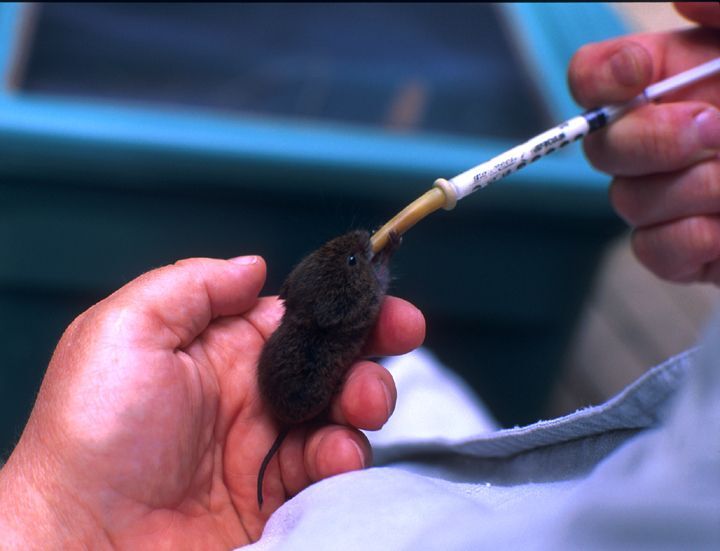
Acadia Wildlife Center is a 501 ©(3) non-profit organization. There is no charge for our services. Wildlife care, like domestic animal medicine, is expensive and we depend solely on grants and donations. No funding comes from state or local sources, or the national park. Donations therefore are essential and very gratefully received. Donation dollars are stretched a long way here. Many services and materials are donated. Staff and volunteers do most of our construction. Your support means the continuation of our mission.
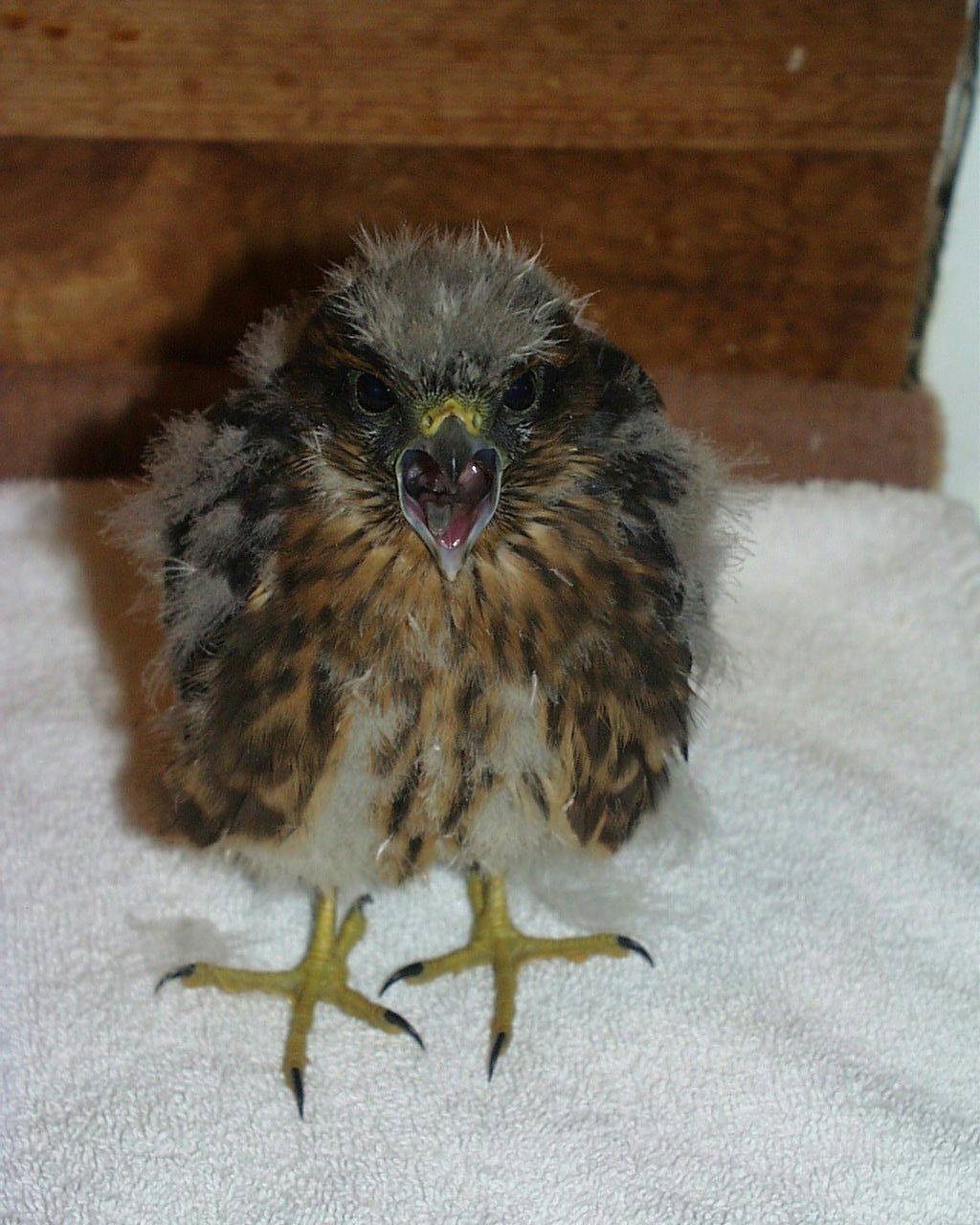
Acadia Wildlife Center is open seven days a week from 9 am to 4 pm, including holidays. Please call us if you have a wildlife situation that we can help you with. Always call before bringing an animal as it is very important to discuss with a licensed rehabilitator to ensure your safety and the best outcome for the animal. We are not open 24 hours a day like an emergency room so if you call after hours listen carefully to our message machine, and we will respond to your message in the morning.
If you’re interested in visiting our Nature Center it is by reservation ONLY, you can register for our events here. NO ONE is allowed to visit the center without first talking to a member of staff or registering for an event.
